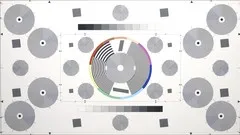![Clustering Analysis Masterclass using Python [2022 Edition]](/ccsimg/dcs/img_tools/96c85c23ce80525170e9c1042fb96daf.webp)
Clustering Analysis Masterclass using Python [2022 Edition] 
Discover the power of Clustering Analysis with the Clustering Analysis Masterclass using Python [2022 Edition]. This online course is your ticket to mastering the art of analyzing data and uncovering patterns of association. From basic to advanced concepts, you'll learn everything you need to know about Clustering Analysis. Dive into topics like K Means Clustering, Hierarchical Clustering, DBSCAN Clustering, and more. With quizzes, instructor support, and access to valuable resources, you'll become an expert in no time. Don't miss out on this opportunity to enhance your data analytics skills. Enroll now and unlock the potential of Clustering Analysis. Get a comprehesive understanding of Clustering Analysis Masterclass using Python [2022 Edition] which is a pay course. AZ Class provides this course data for free. Learn more certificate and details here. ▼
ADVERTISEMENT
Course Feature
![]() Cost:
Cost:
Paid
![]() Provider:
Provider:
Udemy
![]() Certificate:
Certificate:
Paid Certification
![]() Language:
Language:
English
![]() Start Date:
Start Date:
2022-03-24
Course Overview
❗The content presented here is sourced directly from Udemy platform. For comprehensive course details, including enrollment information, simply click on the 'Go to class' link on our website.
Updated in [October 16th, 2023]
What does this course tell?
(Please note that the following overview content is from the original platform)
Welcome to the wonderful online course of Clustering Analysis.Clustering analysis is one of many tools in the data analytics toolkit which can be used to analyze data and find patterns of association. Clustering analysis attempts to determine the structure or hierarchy of a set of objects or events through grouping attributes. This course is best for you to master Clustering Analysis using Python. It covers basic to advanced level of Clustering Analysis concepts.In this course, you will cover:-Introduction to Clustering Analysis.Learn about the Types and Applications of Clustering.Introduction and Implementation of K Means Clustering.Implementation of Elbow and Silhouette method.Learn about the Clustering Multiple Dimensions.Learn about the Dendrograms.Introduction and Implementation of Hierarchical Clustering.Learn about the DBSCAN Clustering and its implementation.Learn about the BIRCH Clustering and its implementation.Learn about the CURE Clustering and its implementation.Learn about the Mini-Batch K-Means Clustering and its implementation.Learn about the Mean Shift Clustering and its implementation.Learn about the OPTICS Clustering and its implementation.Also learn OPTICS Clustering V/S DBSCAN Clustering.Learn about the Spectral Clustering and its implementation.Learn about the Gaussian Mixture Clustering and its implementation.Also learn Gaussian Mixture Clustering V/S K-Means Clustering.Learn about the Kernel Density Estimation and its implementation.After finishing this course, you will become an expert in Clustering Analysis. We are also providing quizzes.You will also have access to all the resources used in this course.Instructor Support - Quick Instructor Support for any queries.Enroll now and make the best use of this course.
We considered the value of this course from many aspects, and finally summarized it for you from two aspects: skills and knowledge, and the people who benefit from it:
(Please note that our content is optimized through artificial intelligence tools and carefully reviewed by our editorial staff.)
What skills and knowledge will you acquire during this course?
During this course, the learner will acquire the following skills and knowledge:
1. Introduction to Clustering Analysis: Understand the fundamentals of clustering analysis and its role in data analytics.
2. Types and Applications of Clustering: Learn about different types of clustering algorithms and their real-world applications.
3. K Means Clustering: Gain proficiency in implementing the K Means clustering algorithm, a popular method for partitioning data into clusters.
4. Elbow and Silhouette Method: Learn how to use the elbow and silhouette methods to determine the optimal number of clusters in K Means clustering.
5. Clustering Multiple Dimensions: Understand how to perform clustering analysis on datasets with multiple dimensions.
6. Dendrograms: Learn about dendrograms, a visual representation of hierarchical clustering results.
7. Hierarchical Clustering: Master the implementation of hierarchical clustering, a method for creating nested clusters.
8. DBSCAN Clustering: Gain expertise in implementing DBSCAN clustering, a density-based algorithm for discovering clusters of arbitrary shape.
9. BIRCH Clustering: Learn how to implement BIRCH clustering, a scalable algorithm for clustering large datasets.
10. CURE Clustering: Understand the implementation of CURE clustering, an algorithm that combines hierarchical and partition-based clustering.
11. Mini-Batch K-Means Clustering: Learn how to perform mini-batch K Means clustering, a variant of K Means that can handle large datasets efficiently.
12. Mean Shift Clustering: Gain proficiency in implementing mean shift clustering, a non-parametric algorithm for finding modes in data.
13. OPTICS Clustering: Learn about OPTICS clustering and its implementation, a density-based algorithm similar to DBSCAN.
14. OPTICS Clustering V/S DBSCAN Clustering: Understand the differences and similarities between OPTICS and DBSCAN clustering algorithms.
15. Spectral Clustering: Master the implementation of spectral clustering, a technique that uses eigenvectors to perform clustering.
16. Gaussian Mixture Clustering: Gain expertise in implementing Gaussian mixture clustering, a probabilistic model-based algorithm.
17. Gaussian Mixture Clustering V/S K-Means Clustering: Understand the differences and similarities between Gaussian mixture and K Means clustering algorithms.
18. Kernel Density Estimation: Learn about kernel density estimation and its implementation, a method for estimating the probability density function of a dataset.
By the end of this course, the learner will become an expert in clustering analysis and will have access to all the resources used in the course. Additionally, quick instructor support is available for any queries.
Who will benefit from this course?
This course on Clustering Analysis using Python will benefit individuals and professionals in the field of data analytics, data science, and machine learning. Specifically, the following groups will find this course valuable:
1. Data Analysts: Data analysts who want to enhance their skills in analyzing and finding patterns in data using clustering techniques will benefit from this course. They will learn various clustering algorithms and their implementations in Python.
2. Data Scientists: Data scientists who work with large datasets and want to explore different clustering methods to uncover hidden patterns and structures in the data will find this course beneficial. They will gain knowledge about advanced clustering algorithms like DBSCAN, BIRCH, Mean Shift, OPTICS, Spectral Clustering, and Gaussian Mixture Clustering.
3. Machine Learning Engineers: Machine learning engineers who want to expand their knowledge of clustering algorithms and their applications in machine learning tasks such as dimensionality reduction, anomaly detection, and customer segmentation will find this course useful. They will learn about clustering multiple dimensions, dendrograms, and kernel density estimation.
4. Researchers: Researchers in various fields such as social sciences, biology, finance, and marketing who need to analyze and group large datasets will benefit from this course. They will learn different clustering techniques and gain insights into their applications in their respective domains.
5. Students and Aspiring Data Scientists: Students pursuing a career in data science or machine learning can take this course to gain a solid foundation in clustering analysis. It will provide them with the necessary knowledge and skills to apply clustering algorithms in real-world scenarios.
Course Syllabus
Introduction to Clustering Analysis
Advanced Clustering Analysis
Optimizing Agricultural Production
Customer Segmentation Engine
Outro Section
Final Section
Course Provider

Provider Udemy's Stats at AZClass
Discussion and Reviews
0.0 (Based on 0 reviews)
Explore Similar Online Courses

K-Means for Cluster Analysis and Unsupervised Learning

Master Clustering Analysis for Data Science using Python

Python for Informatics: Exploring Information

Social Network Analysis

Introduction to Systematic Review and Meta-Analysis

The Analytics Edge

DCO042 - Python For Informatics

Causal Diagrams: Draw Your Assumptions Before Your Conclusions

Whole genome sequencing of bacterial genomes - tools and applications

Hadoop Cluster Administration Course: Guide for Hadoop Admin

Cluster Analysis and Unsupervised Machine Learning in Python


Start your review of Clustering Analysis Masterclass using Python [2022 Edition]